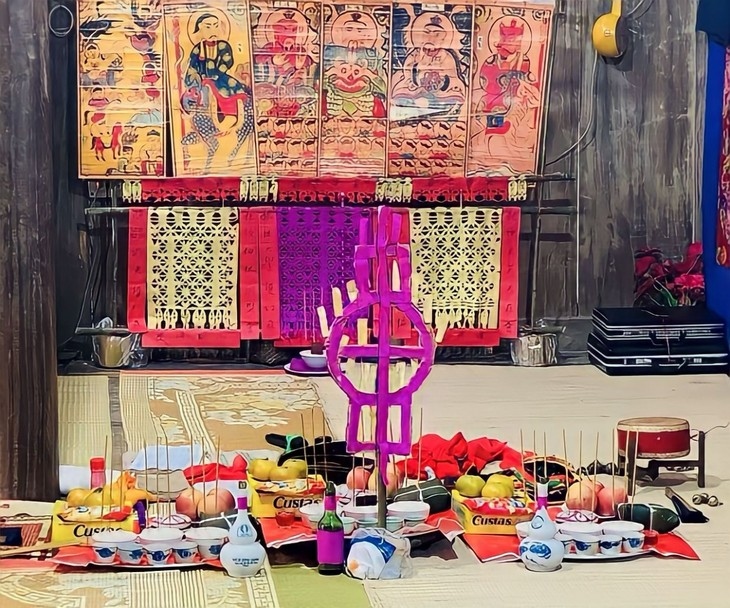The Nung people of Na Ri district in Bac Kan province have a rich cultural heritage that is showcased in their springtime Longevity ritual.
As the season brings forth pink peach blossoms and white plum flowers, the Nung community prepares to honor their elders with a ceremony that celebrates life, family, and the passing of time. It is a tradition that has been passed down through generations, a testament to the Nung’s deep respect for their elderly family members and their wish for peace, happiness, and prosperity for all.
Artisan Nong Van Ho, a seasoned performer of many Longevity ceremonies, shares that children choose a auspicious spring day to organize this special ritual for their parents who have attained the age of 70 or older. The main event is held on the birthday of the parent, with an additional ceremony during the New Year holiday when the entire family is gathered.
The offerings for the Longevity ritual are carefully prepared and include 4 bowls of rice, 5 tea cups, cakes, roosters, and hens. The shaman, an integral part of the ceremony, performs rituals to pave the road to the Land Genie, the Village Tutelary, and the ancestral altar. Their prayers are sung to bring good health and a long life to the elders.

Nong Van Cuong, a resident of Na Dam hamlet, recently held such a ceremony for his mother, who turned 80. The ritual, he shares, can last up to 4 to 5 hours and is usually held during the day for convenience. The shaman performs the ceremony in two steps—the first involving specific activities and prayers to honor the Land Genie, Village Tutelary, and ancestors, and the second being a ritual to relieve bad luck and bring good fortune.
Artisan Ho beautifully captures the essence of the ceremony: “Today is a good day. The children are extending their parents’ destiny and wishing them a long and healthy life, filled with happiness and surrounded by their loving family.”
The Longevity ritual is more than just a ceremony; it is a testament to the Nung people’s humanity, morality, and gratitude. By celebrating the birthdays of their elders, the younger generation expresses their respect and appreciation for the sacrifices and love their parents have bestowed upon them.









